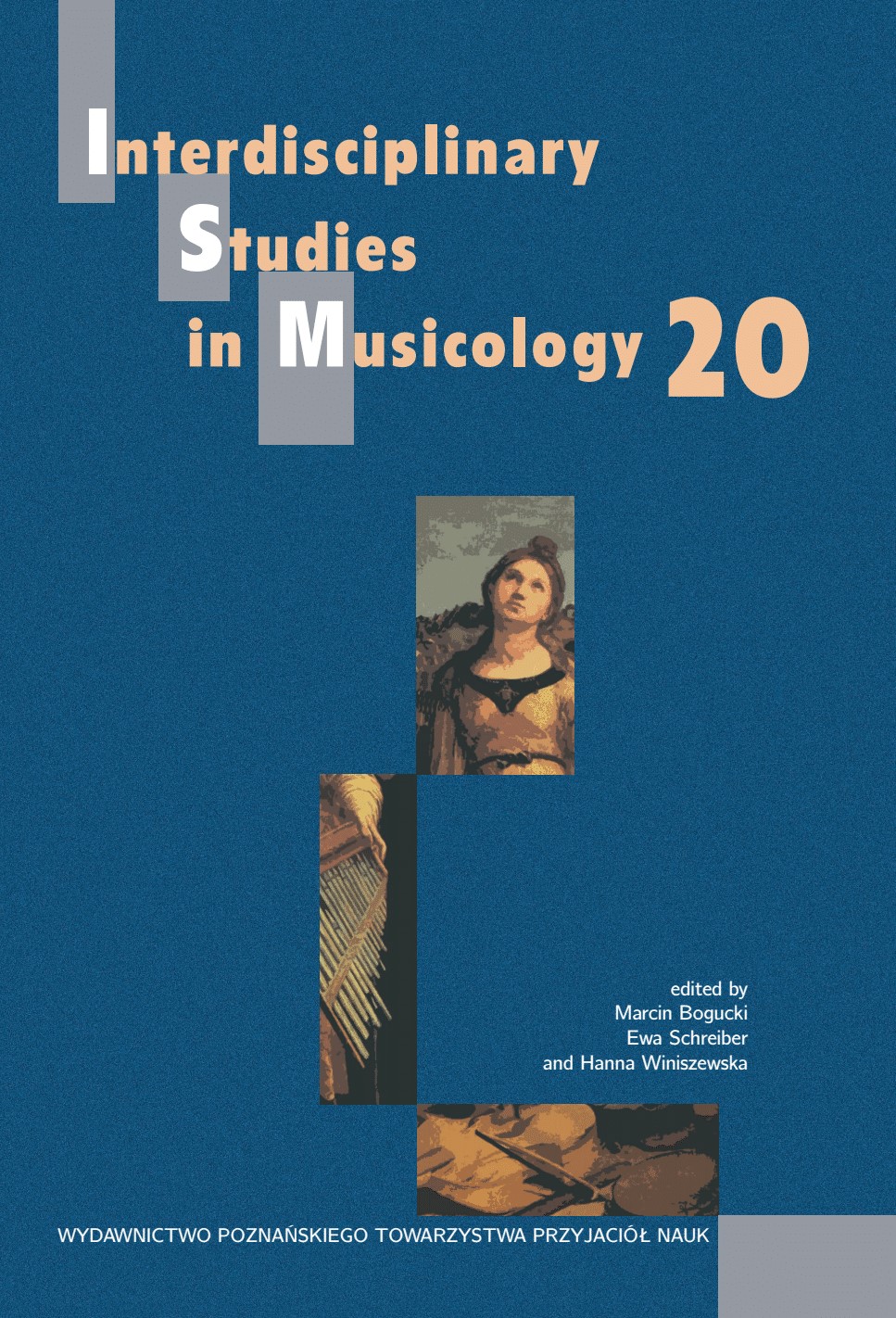Philology as a systematic method of documentation and its application to the study of Constança Capdeville’s musical works
Philology as a systematic method of documentation and its application to the study of Constança Capdeville’s musical works
Author(s): Filipa MagalhãesSubject(s): Music
Published by: Uniwersytet Adama Mickiewicza
Keywords: digital philology; audio preservation; documentation; contemporary Portuguese music; Constança Capdeville;
Summary/Abstract: The advent of new music technologies has led to a rapid growth of the audio preservation field. Music is not independent of its medium, and this growing loss of independence calls for a transdisciplinary approach with a strong technological component. Musical compositions created in the second half of the twentieth century exist in the intersection of technology, embodiment, and sound and thus widen the importance of aspects such as human and non-human interactions. This article will reflect on these issues and how they reframe (digital) philology methods through the works of Constança Capdeville. The works by this seminal artist are accompanied by an extensive archive that includes scores, recorded sounds, video and images, among other documents. It will be demonstrated how a reflexive approach to digital philology can bring concealed archival stories to light while fostering new meanings on what it means to preserve our sound heritage. Resource optimisation is one of the reasons methods of traditional philology are particularly useful for the preservation of contemporary musical heritage. Today the amount of information is excessive, and categorisation and organisation are complex. Most information exists in the form of digitised documents, that comply with certain requirements traditionally applied to secular paper registers while assessing qualities such as reliability and authenticity. Traditional philology approaches framed around these qualities are insufficient for born-digital documents. A reflexive approach to digital philology, focussed both on the creation of digital resources (from digitalisation to cataloguing) and the criticism of digital sources, as a solution the digital treatment of documents is proposed. A comparative approach will be used to understand in what ways digital and analogue media intertwine in the forms we think, reflect, historicise, and preserve our sound archives, and how we make visible aspects that were previously concealed through new forms of categorising and digitising documents.
Journal: Interdisciplinary Studies in Musicology
- Issue Year: 2020
- Issue No: 20
- Page Range: 64-78
- Page Count: 15
- Language: English

